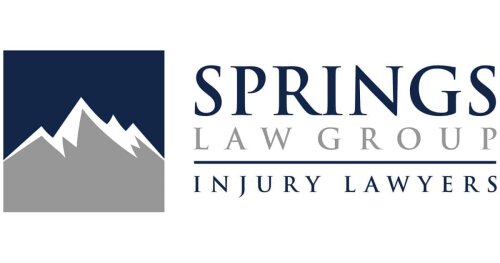Best Restructuring & Insolvency Lawyers in Colorado
Share your needs with us, get contacted by law firms.
Free. Takes 2 min.
Or refine your search by selecting a city:
List of the best lawyers in Colorado, United States

About Restructuring & Insolvency Law in Colorado, United States
Restructuring and insolvency law in Colorado deals with the legal processes and strategies available to individuals and businesses facing financial distress. These laws help debtors manage or eliminate debt through formal procedures, such as bankruptcy, and informal arrangements, like negotiations with creditors. For businesses, restructuring can involve reorganizing debts and assets to stabilize finances and continue operations. Insolvency, more broadly, refers to situations where debts exceed assets or an entity cannot pay its obligations as they come due. Colorado follows federal bankruptcy laws while also having state-specific rules that impact property exemptions, creditor rights, and procedures in the state’s courts.
Why You May Need a Lawyer
Navigating restructuring and insolvency is complicated. You may need a lawyer if you are:
- Overwhelmed by mounting personal or business debts and unsure of your legal options
- Facing foreclosure, repossessions, wage garnishments, or creditor lawsuits
- Trying to protect critical assets, like your home, vehicles, or business property
- Running a business and considering Chapter 11 bankruptcy for reorganization
- Negotiating with creditors for debt reduction or more favorable payment terms
- A creditor seeking to maximize recovery from an insolvent debtor
An experienced restructuring and insolvency lawyer can provide guidance on the best course of action, handle complex filing requirements, protect your interests in court, and negotiate with creditors or trustees on your behalf.
Local Laws Overview
Most insolvency matters, particularly bankruptcy, are governed by federal law under the United States Bankruptcy Code. However, Colorado law comes into play in several ways:
- Colorado has specific exemptions that determine what property you can keep in bankruptcy, such as homestead, motor vehicle, and personal property exemptions
- The state operates its own bankruptcy courts: the United States Bankruptcy Court for the District of Colorado
- Certain types of non-bankruptcy restructuring or assignments for the benefit of creditors may be handled under Colorado state law
- Colorado adheres to the Uniform Commercial Code (UCC) for secured transactions, which impacts creditor rights in insolvency proceedings
- Foreclosure laws in Colorado are non-judicial and may proceed quickly, especially if you fall behind on mortgage payments
Understanding the interplay between federal and state laws is crucial in successfully navigating restructuring or insolvency proceedings in Colorado.
Frequently Asked Questions
What is the difference between restructuring and insolvency?
Restructuring involves reorganizing a business or personal debts to avoid insolvency or bankruptcy, often through negotiation or new financing. Insolvency means you are unable to pay your debts as they become due or your liabilities exceed your assets.
What types of bankruptcy are available in Colorado?
Individuals typically file Chapter 7 (liquidation) or Chapter 13 (reorganization). Businesses may file Chapter 7 or Chapter 11 (business reorganization). Farmers and fishermen have access to Chapter 12.
Will I lose my home if I file for bankruptcy in Colorado?
Colorado law allows for a homestead exemption, which protects a certain amount of home equity. If your equity is within the exemption limit, you may keep your home. If not, it might be at risk in a Chapter 7 bankruptcy.
Can I negotiate with creditors without filing for bankruptcy?
Yes, you can try to negotiate debt reductions, payment plans, or settlements directly with creditors, often referred to as out-of-court restructuring or workouts.
How long does bankruptcy stay on my credit report?
A Chapter 7 bankruptcy generally remains on your credit report for 10 years. Chapter 13 typically stays for 7 years from the filing date.
What property is exempt in a Colorado bankruptcy?
Exempt property includes a portion of home equity, one or more vehicles (up to a set value), personal belongings, retirement accounts, tools of the trade, and some wages. Exemption values change periodically by state law.
How quickly can creditors garnish my wages in Colorado?
Once a creditor obtains a court judgment, they can request an order for wage garnishment. There are legal limits to how much can be garnished from your paycheck.
Are tax debts dischargeable in bankruptcy?
Some tax debts can be discharged under specific circumstances, but most recent tax debts and payroll taxes are not dischargeable. Consult with a lawyer on your specific case.
Do I need a lawyer to file for bankruptcy?
While you can file on your own, bankruptcy law is complex. A lawyer helps navigate forms, deadlines, hearings, and maximizes asset protection and legal outcomes.
What happens to my business if I file Chapter 11?
Chapter 11 allows businesses to continue operating under court supervision while restructuring debts and seeking approval for a reorganization plan. A successful plan can help the business emerge from bankruptcy.
Additional Resources
Several organizations and governmental bodies provide assistance and information:
- United States Bankruptcy Court for the District of Colorado - for filing information and forms
- Colorado Bar Association - for legal referrals and general guidance
- Legal Aid Foundation of Colorado - for those who qualify for no-cost or low-cost legal services
- Colorado Attorney General’s Office - consumer protection and financial advice
- Local credit counseling agencies - for debt management and financial education
Next Steps
If you are considering restructuring or facing insolvency in Colorado, start by gathering detailed information about your debts, assets, and income. Contact a qualified restructuring and insolvency attorney to discuss your situation and explore your options. You can request consultations from local law firms or use lawyer referral services such as those offered by the Colorado Bar Association. Document all creditor communications and keep records of your financial transactions. If immediate legal action is needed, such as halting a foreclosure or wage garnishment, inform your lawyer right away so urgent protective steps can be taken. Navigating financial distress is challenging, but with the right legal advice and support, you can work toward financial recovery and a fresh start.
Lawzana helps you find the best lawyers and law firms in Colorado through a curated and pre-screened list of qualified legal professionals. Our platform offers rankings and detailed profiles of attorneys and law firms, allowing you to compare based on practice areas, including Restructuring & Insolvency, experience, and client feedback.
Each profile includes a description of the firm's areas of practice, client reviews, team members and partners, year of establishment, spoken languages, office locations, contact information, social media presence, and any published articles or resources. Most firms on our platform speak English and are experienced in both local and international legal matters.
Get a quote from top-rated law firms in Colorado, United States — quickly, securely, and without unnecessary hassle.
Disclaimer:
The information provided on this page is for general informational purposes only and does not constitute legal advice. While we strive to ensure the accuracy and relevance of the content, legal information may change over time, and interpretations of the law can vary. You should always consult with a qualified legal professional for advice specific to your situation.
We disclaim all liability for actions taken or not taken based on the content of this page. If you believe any information is incorrect or outdated, please contact us, and we will review and update it where appropriate.
Browse restructuring & insolvency law firms by city in Colorado
Refine your search by selecting a city.










